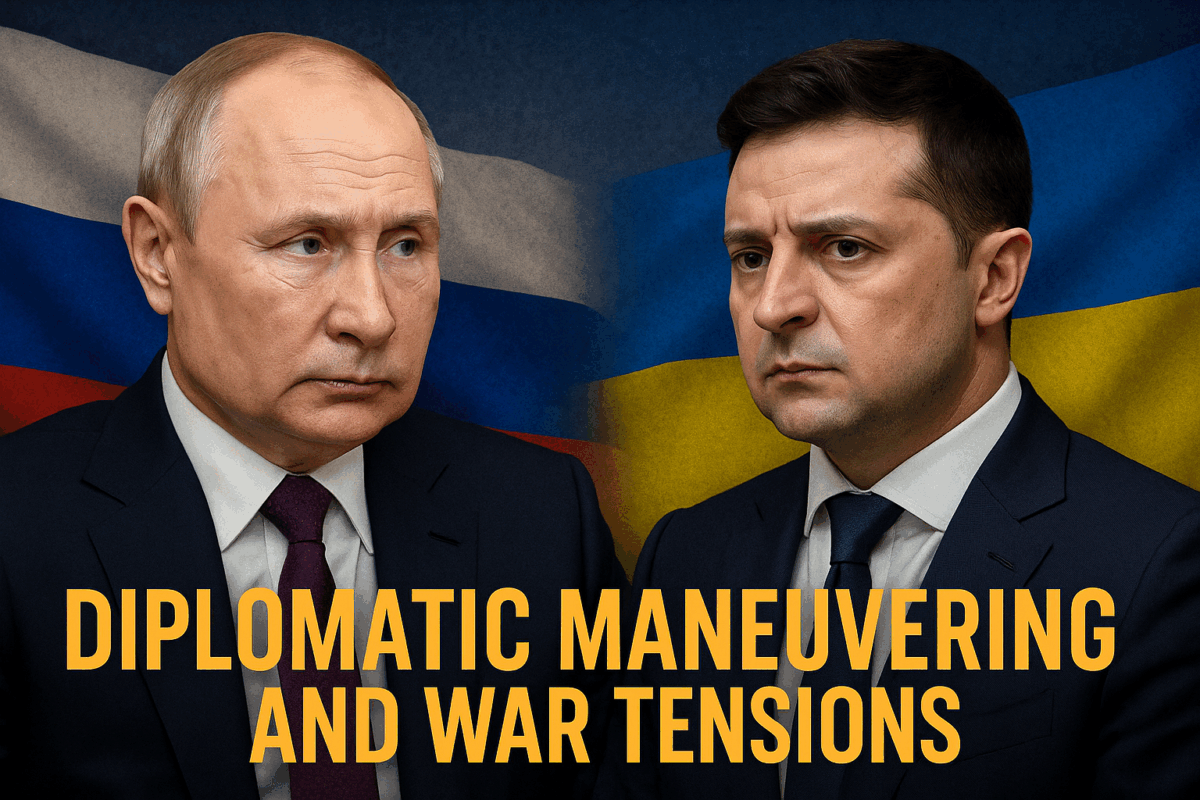Global politics are once again dominated by diplomatic maneuvering and war tensions as Russia, Ukraine, and Western powers continue their struggle over peace, sovereignty, and security. Recent events highlight the fragile balance between military confrontation and diplomatic negotiations, with world leaders searching for solutions to end the ongoing conflict.
The Trump–Putin Meeting in Alaska
Earlier this month, former U.S. President Donald Trump met with Russian President Vladimir Putin in Alaska to discuss potential steps toward ending the war in Ukraine. Although the summit received massive international attention, it ended without a concrete agreement. Putin repeated Russia’s demands: recognition of control over the Donbas region, Ukraine’s neutrality, and a halt to NATO expansion. Trump, on the other hand, suggested that Ukraine would need to consider concessions in order to achieve peace.
The meeting exposed the deep divisions in approach. While some hoped this dialogue could serve as a path toward de-escalation, critics in both Europe and the U.S. warned that accepting Putin’s conditions would undermine international law and reward aggression.
EU Leaders Warn of a Trap
European leaders, including EU foreign policy chief Kaja Kallas, have warned that Putin’s diplomatic charm offensive is nothing more than a trap. According to Kallas, Russia is presenting itself as a willing partner in negotiations while simultaneously escalating military actions in Ukraine. This dual strategy, she argues, is designed to weaken Western unity and pressure Ukraine into making dangerous concessions.
No Putin–Zelensky Meeting Planned
Despite speculation, Russian Foreign Minister Sergey Lavrov confirmed that no direct meeting between Putin and Ukrainian President Volodymyr Zelensky is planned. Moscow insists that talks can only move forward if Ukraine accepts the preconditions laid out by the Kremlin. Zelensky, however, has repeatedly rejected such terms, emphasizing that Ukraine will not surrender its sovereignty or territorial integrity.
War on the Ground Continues
While diplomacy plays out on the global stage, the war continues to intensify. Russian forces have launched new missile and drone strikes across Ukraine, hitting both military and civilian infrastructure. These attacks have caused significant casualties and further strained international relations. Western allies argue that Russia’s ongoing assaults prove Moscow is not negotiating in good faith.
At the same time, Ukraine continues to receive military aid and political support from the United States and NATO allies. This backing strengthens Kyiv’s ability to resist but also prolongs the conflict, as neither side appears willing to compromise.
The Broader Implications
The diplomatic maneuvering and war tensions unfolding today are not limited to Russia and Ukraine. They represent a global challenge that affects security, energy markets, and alliances worldwide. If diplomacy fails, the conflict could escalate further, drawing in more nations and destabilizing regions beyond Eastern Europe. Conversely, if effective negotiations can be established, it might pave the way for a more balanced international order.
The struggle between diplomacy and war continues to define the conflict in Ukraine. Meetings, warnings, and negotiations demonstrate the high stakes of international politics, yet missiles and casualties reveal the harsh reality on the ground. Until genuine compromise is reached, war tensions will persist and global leaders will face mounting pressure to choose between confrontation and peace.


